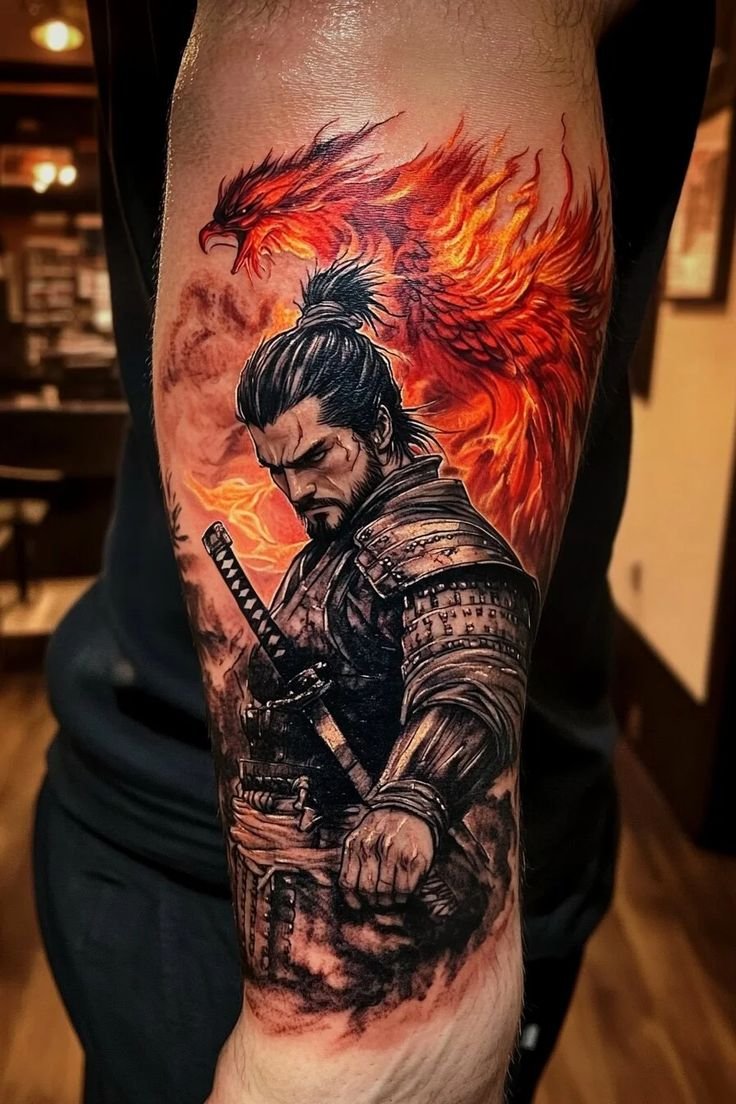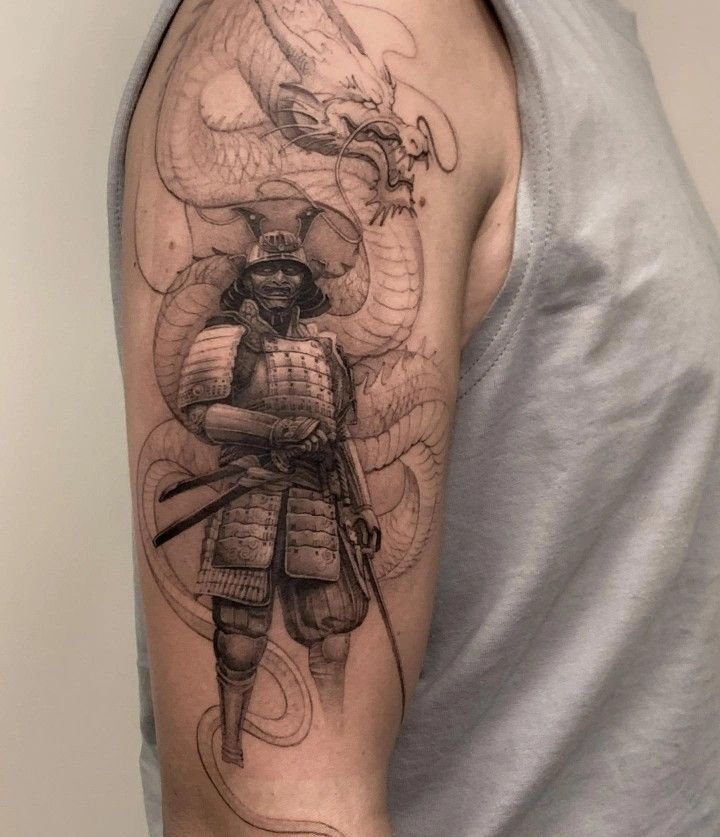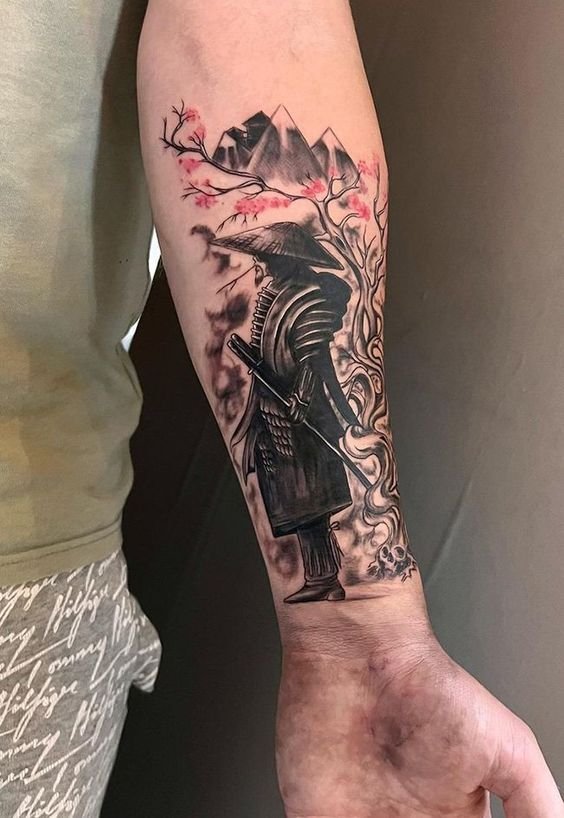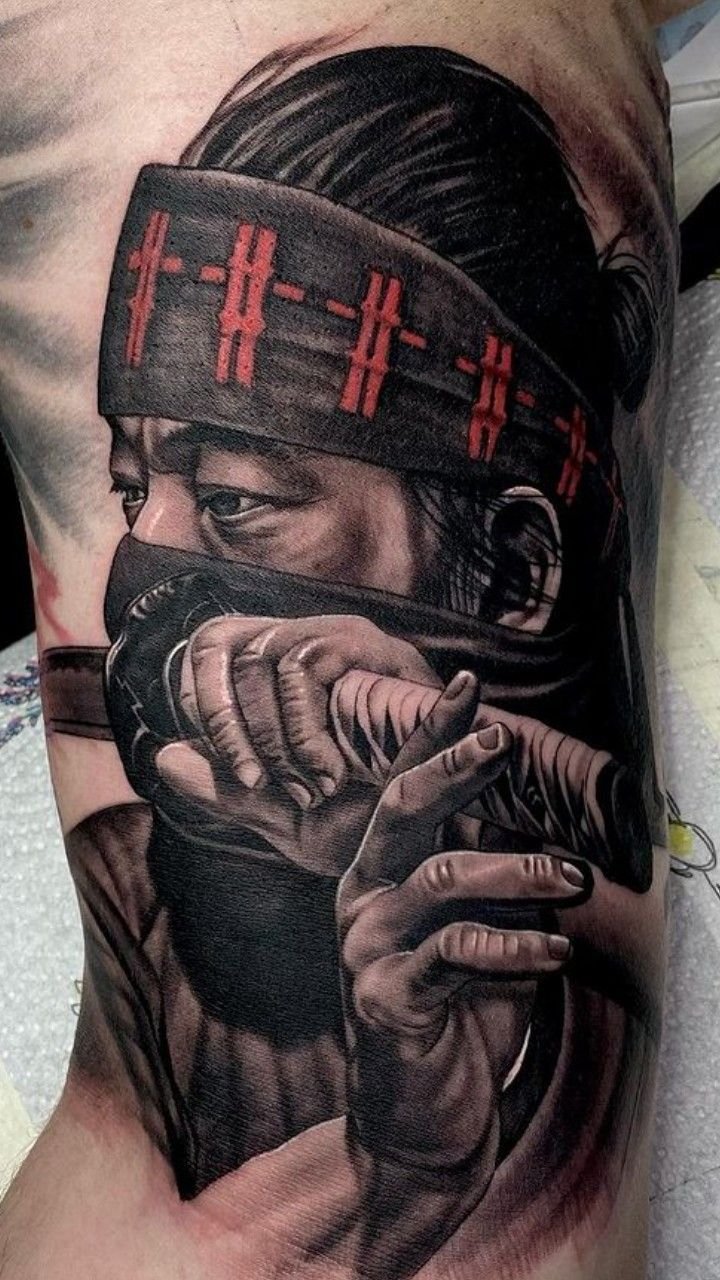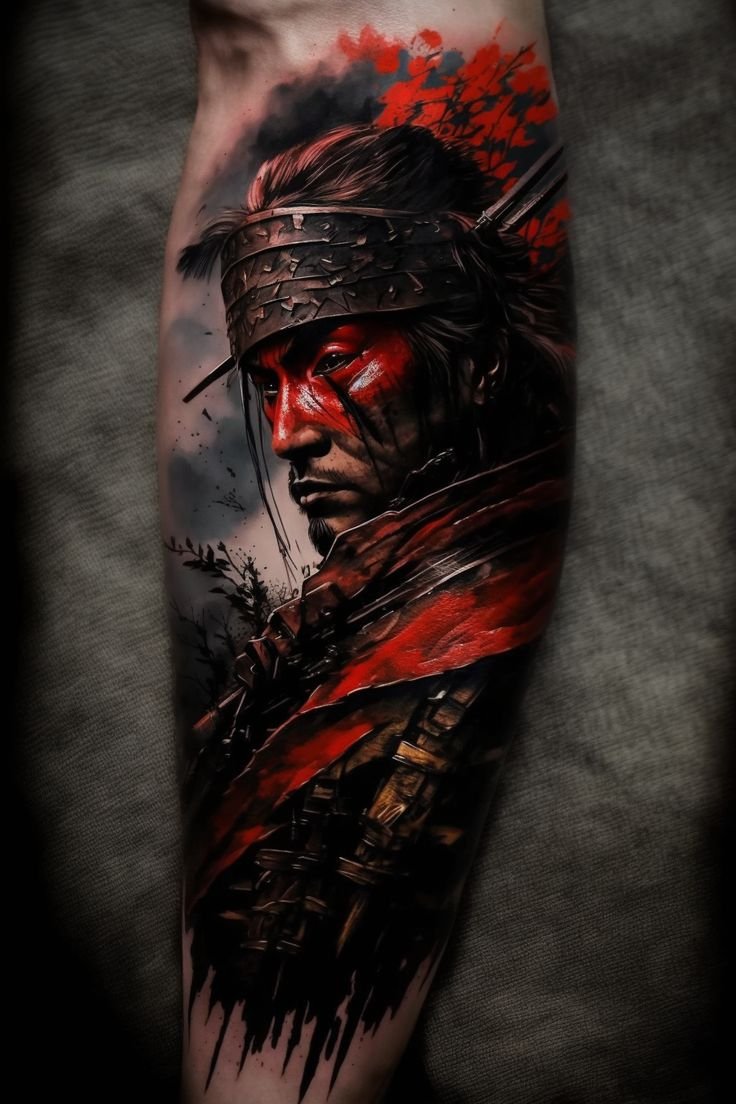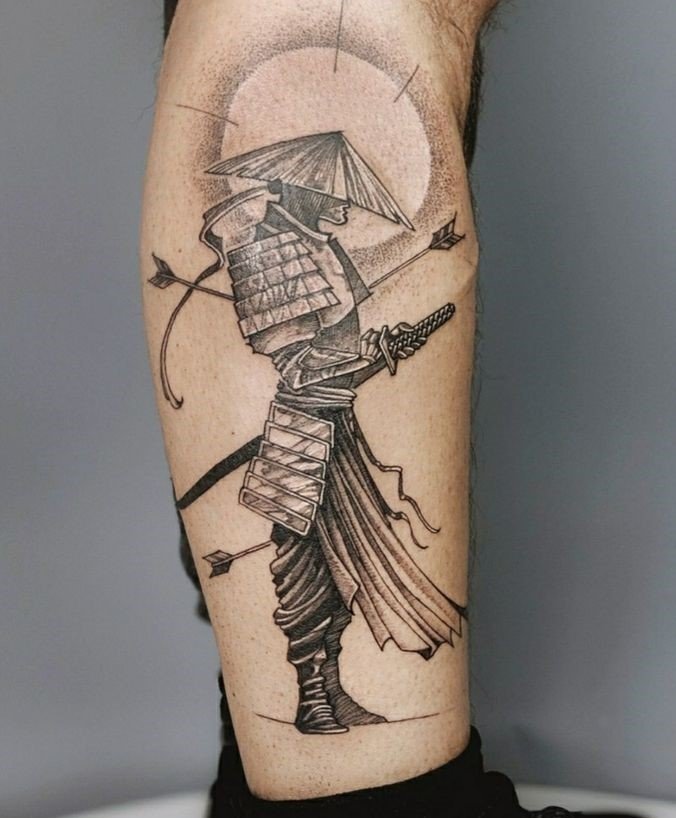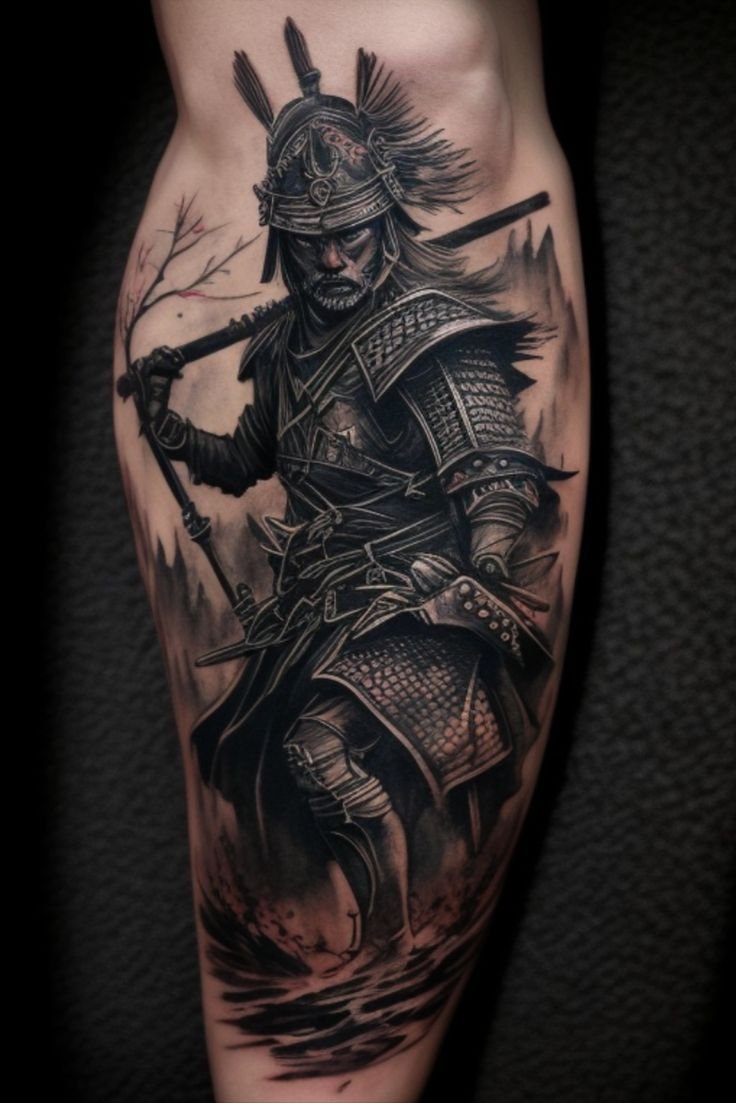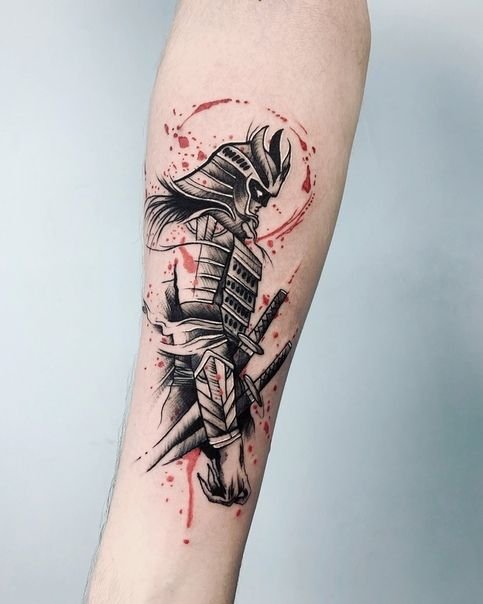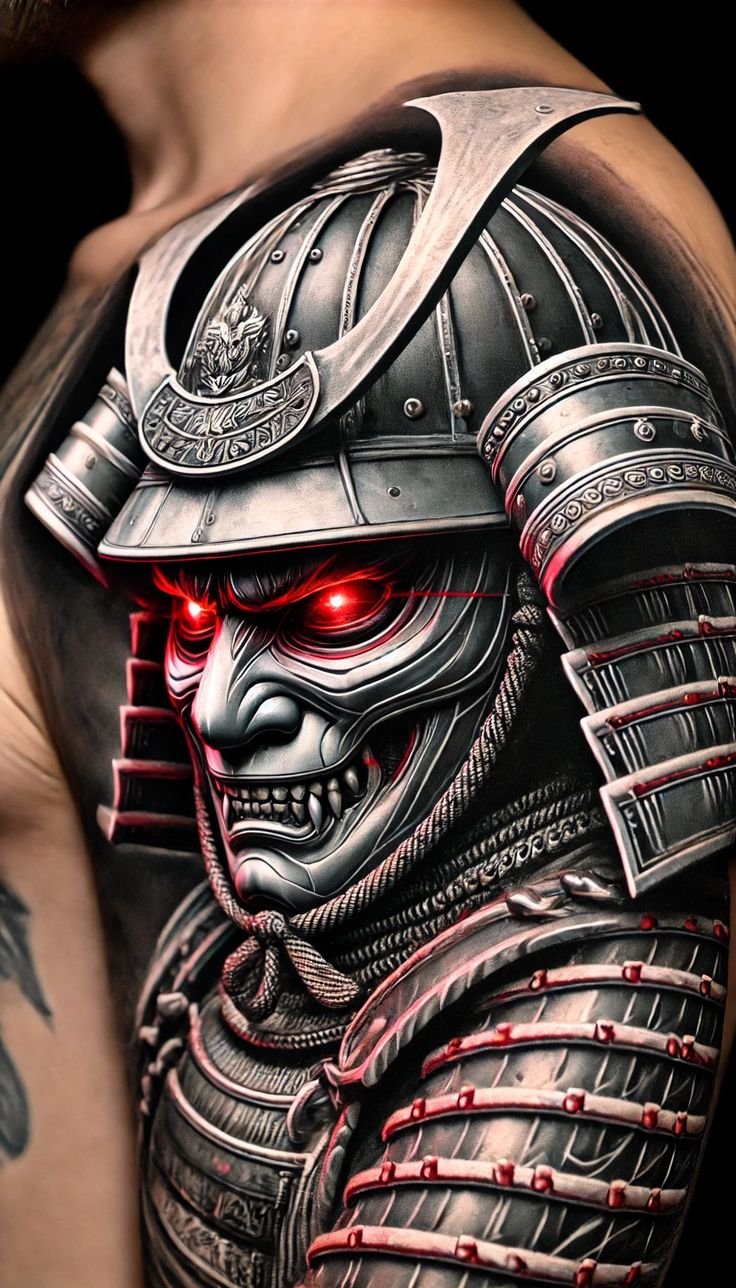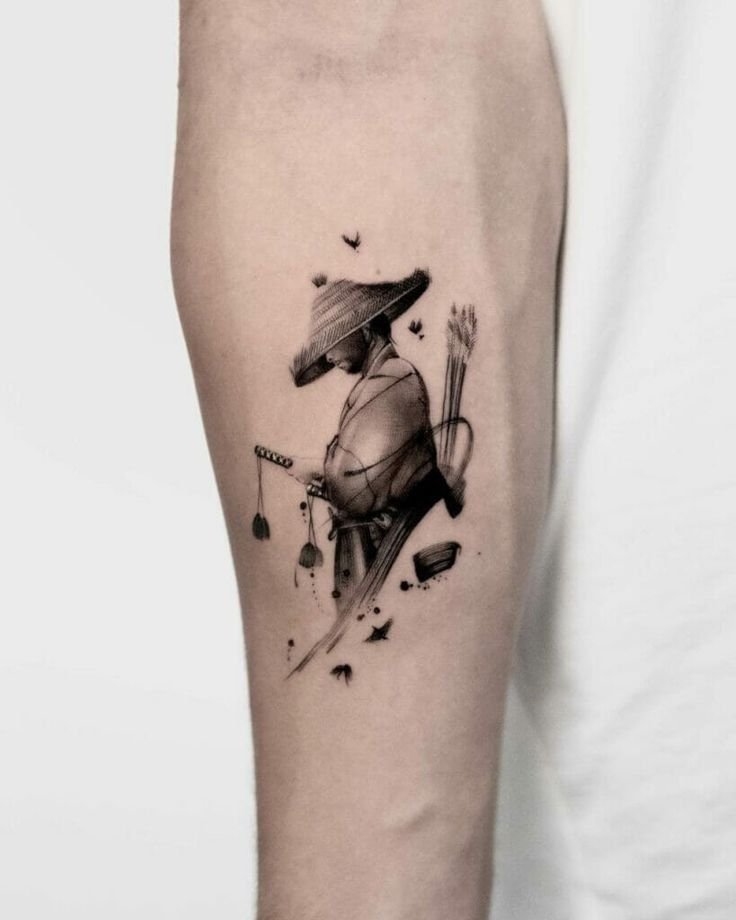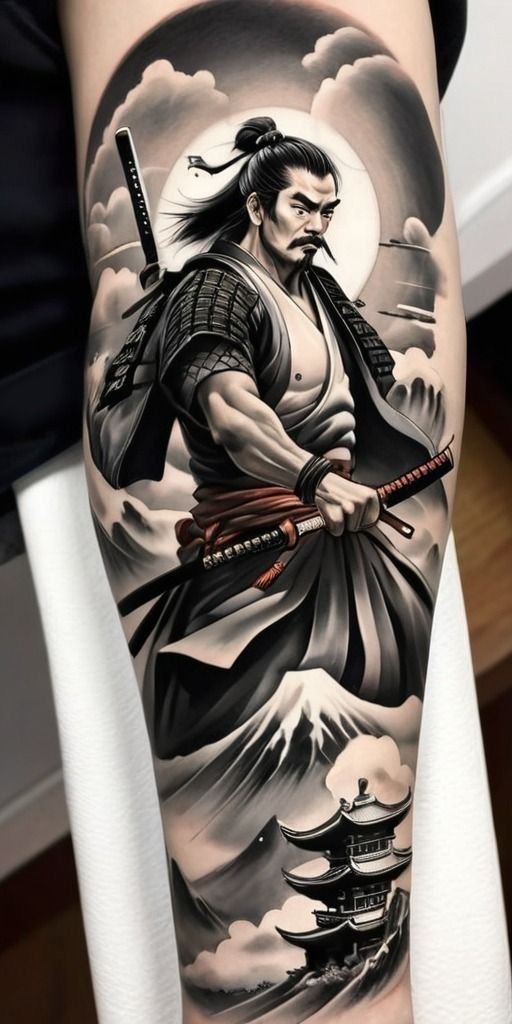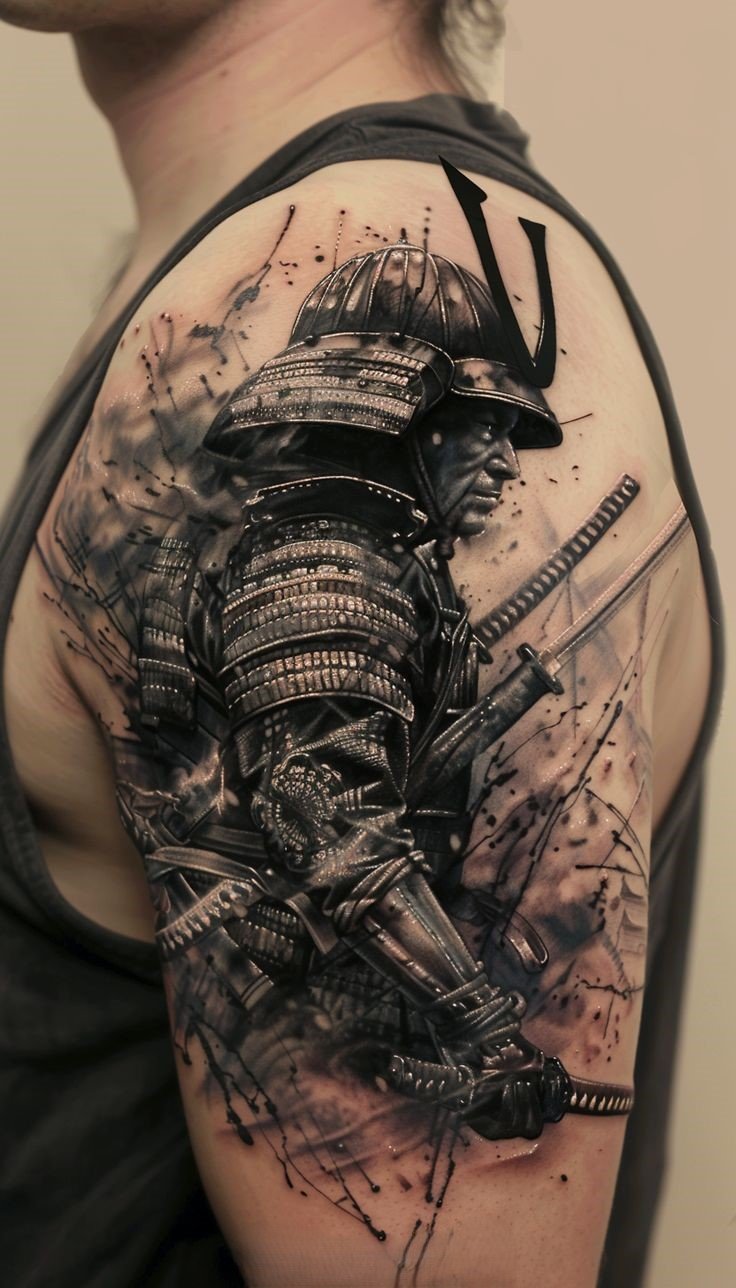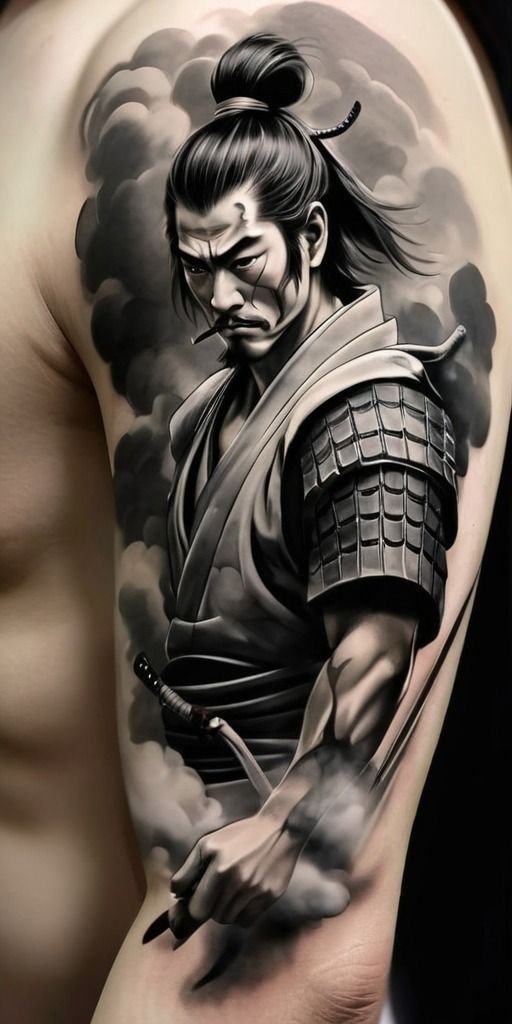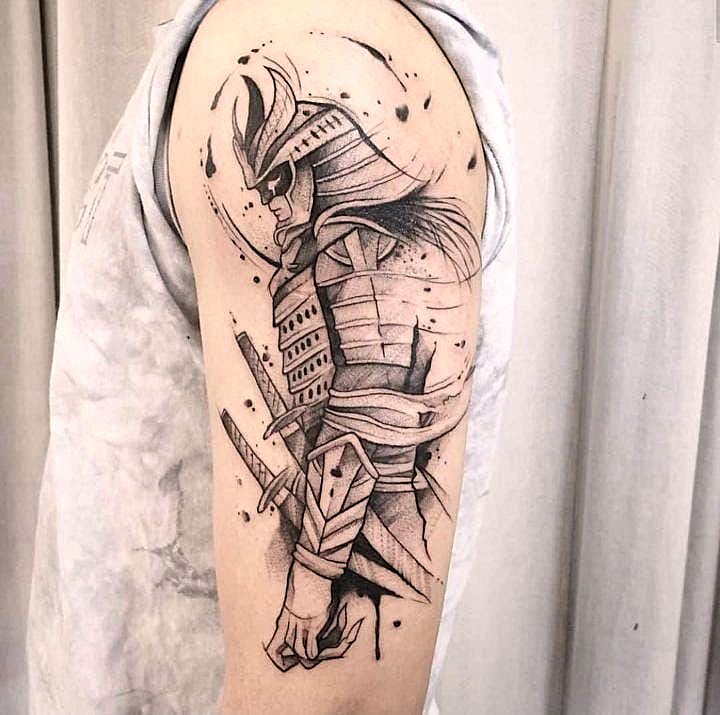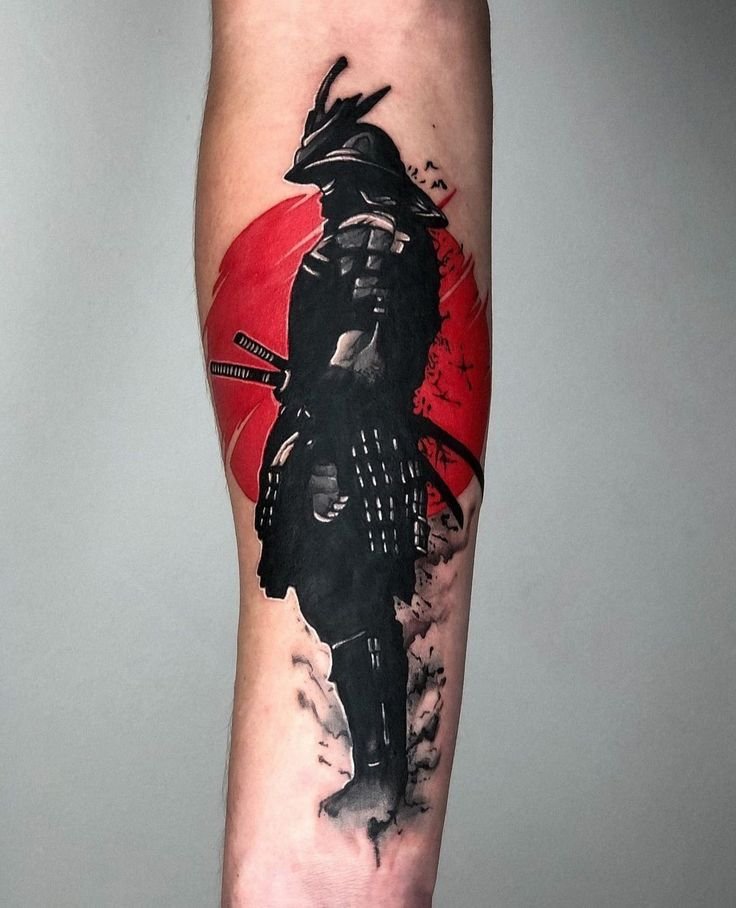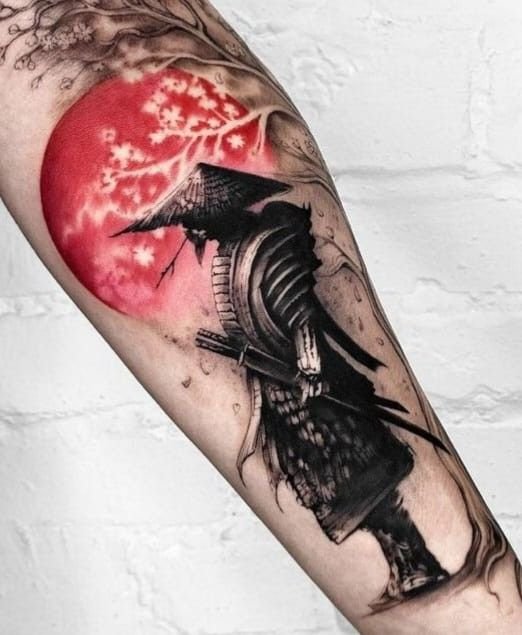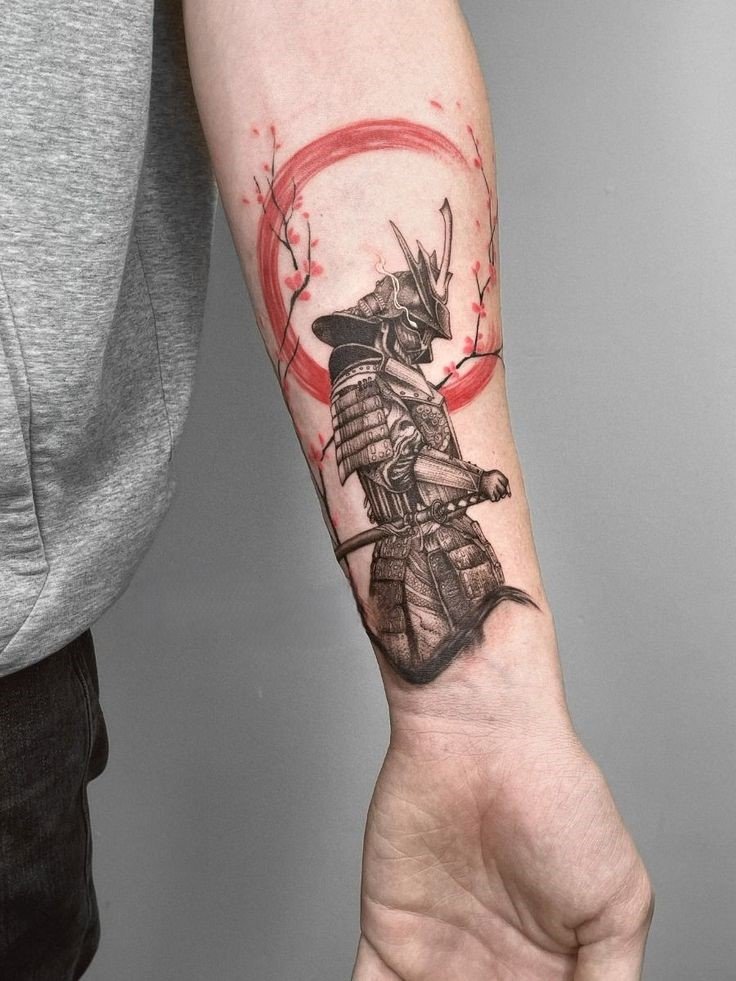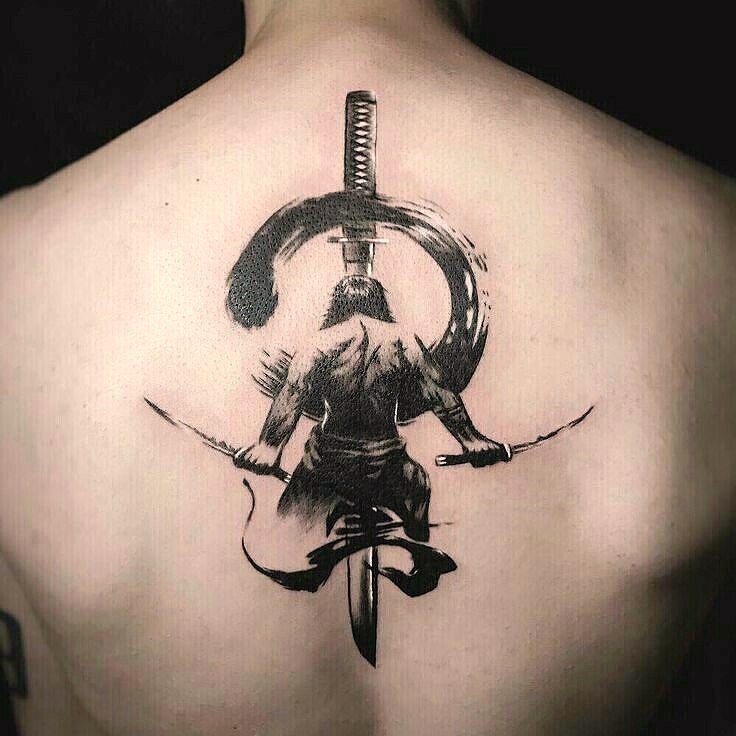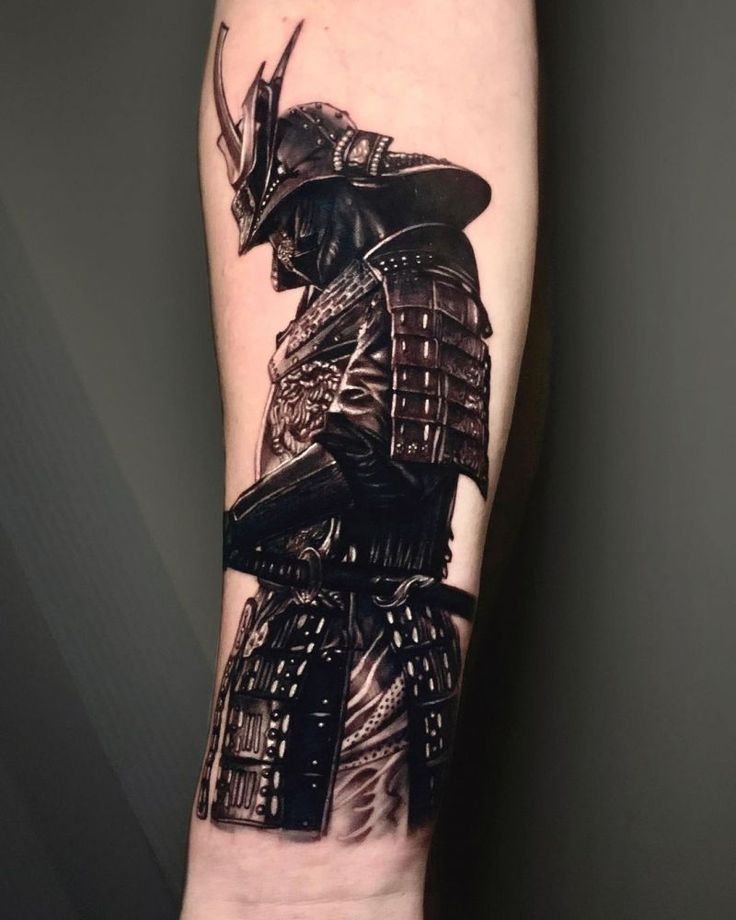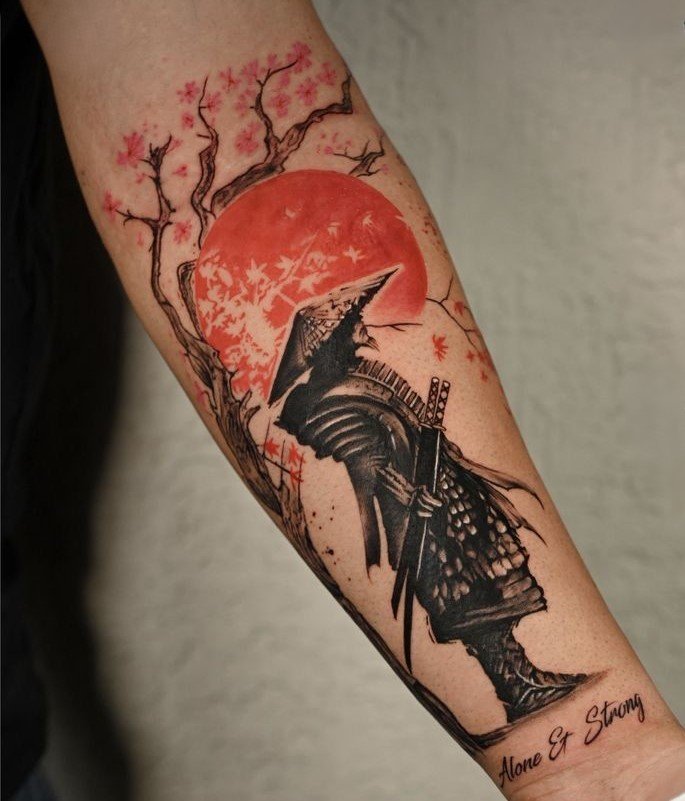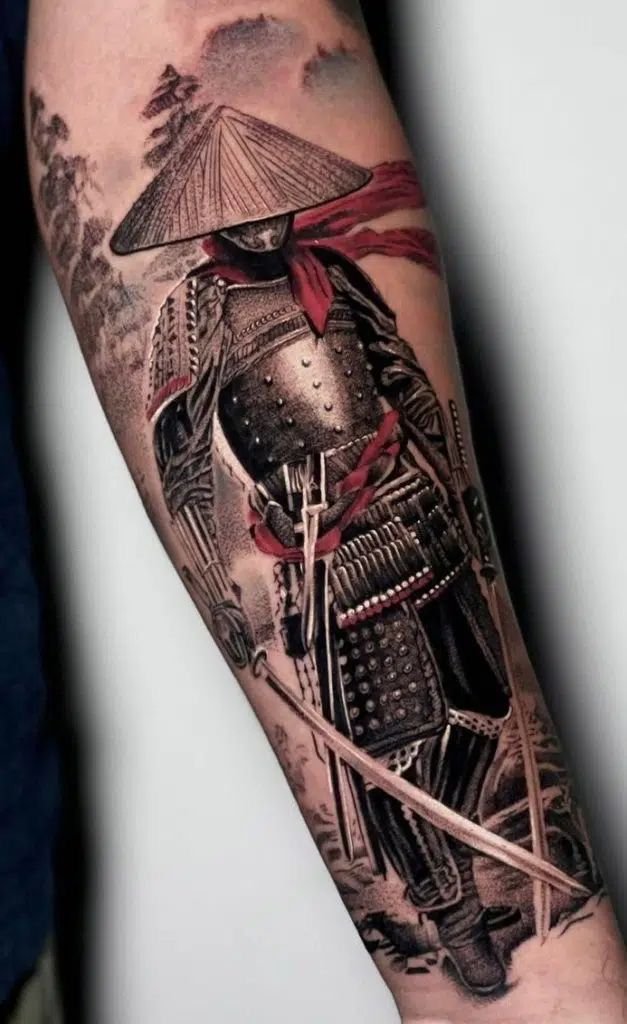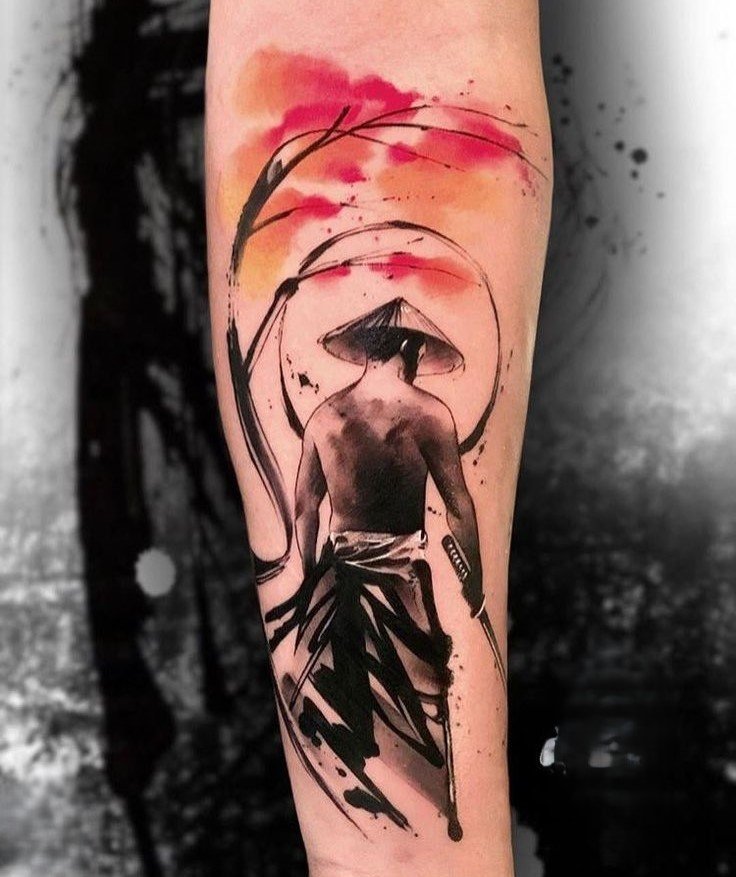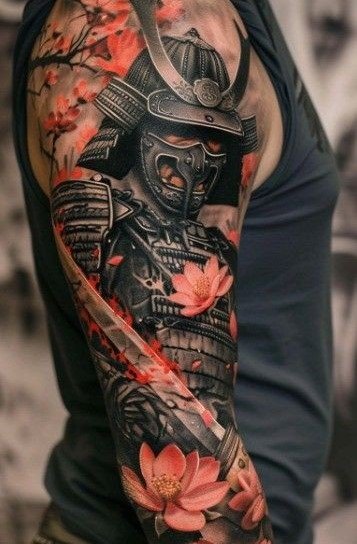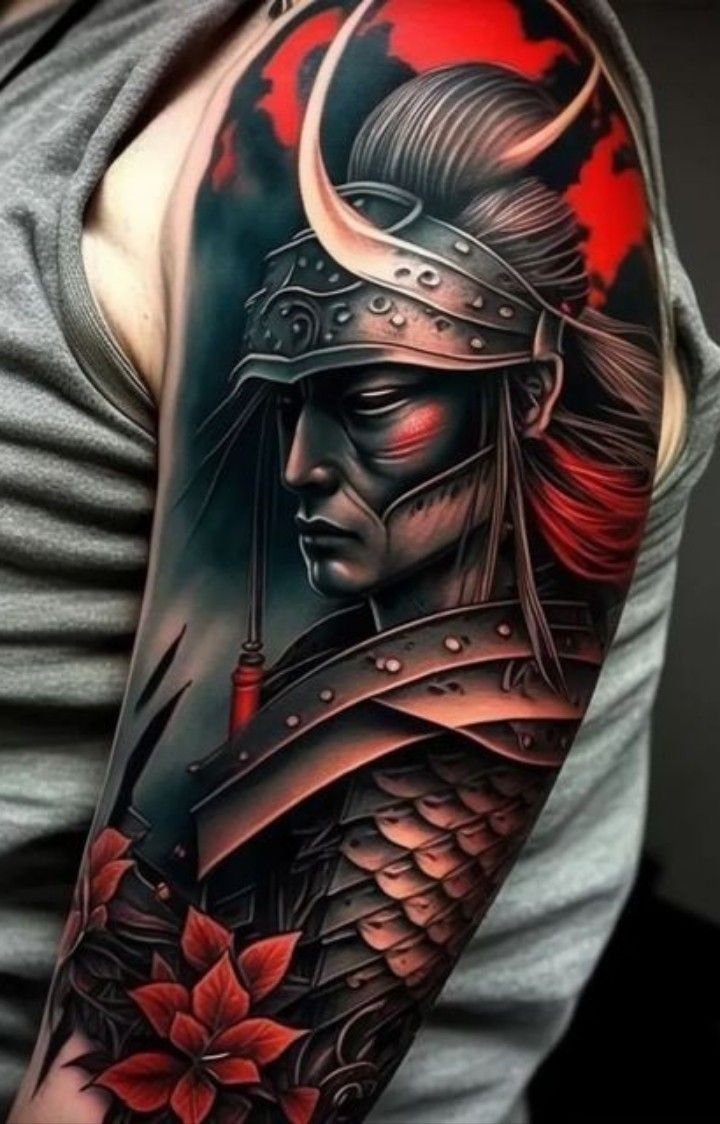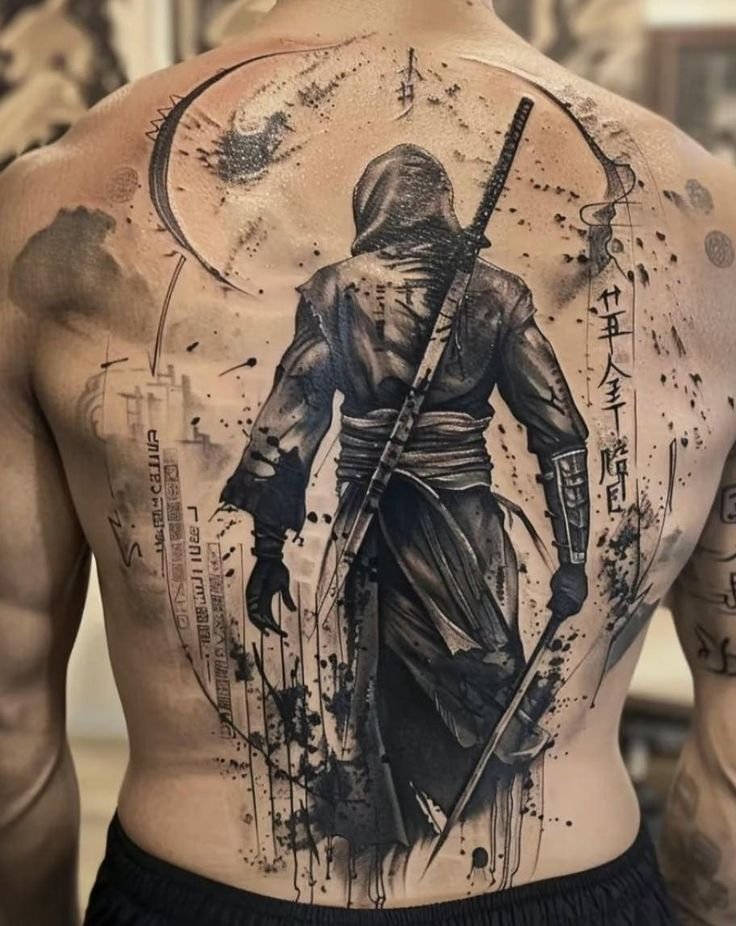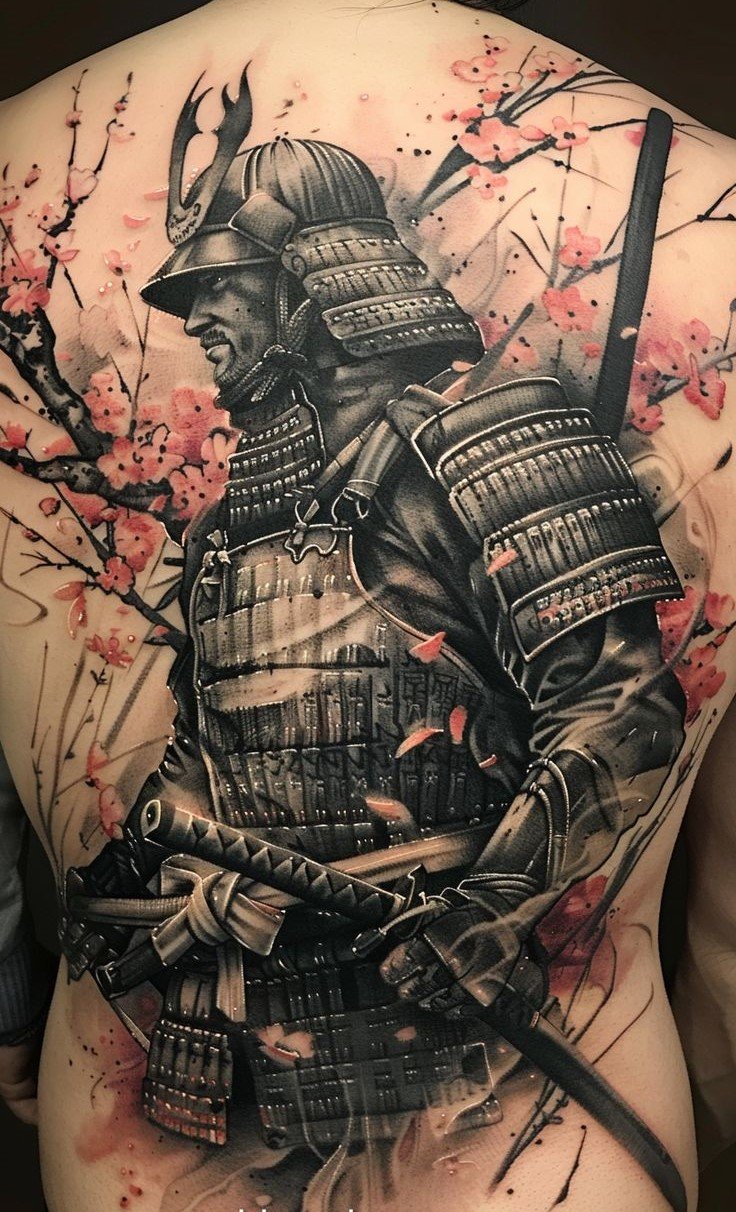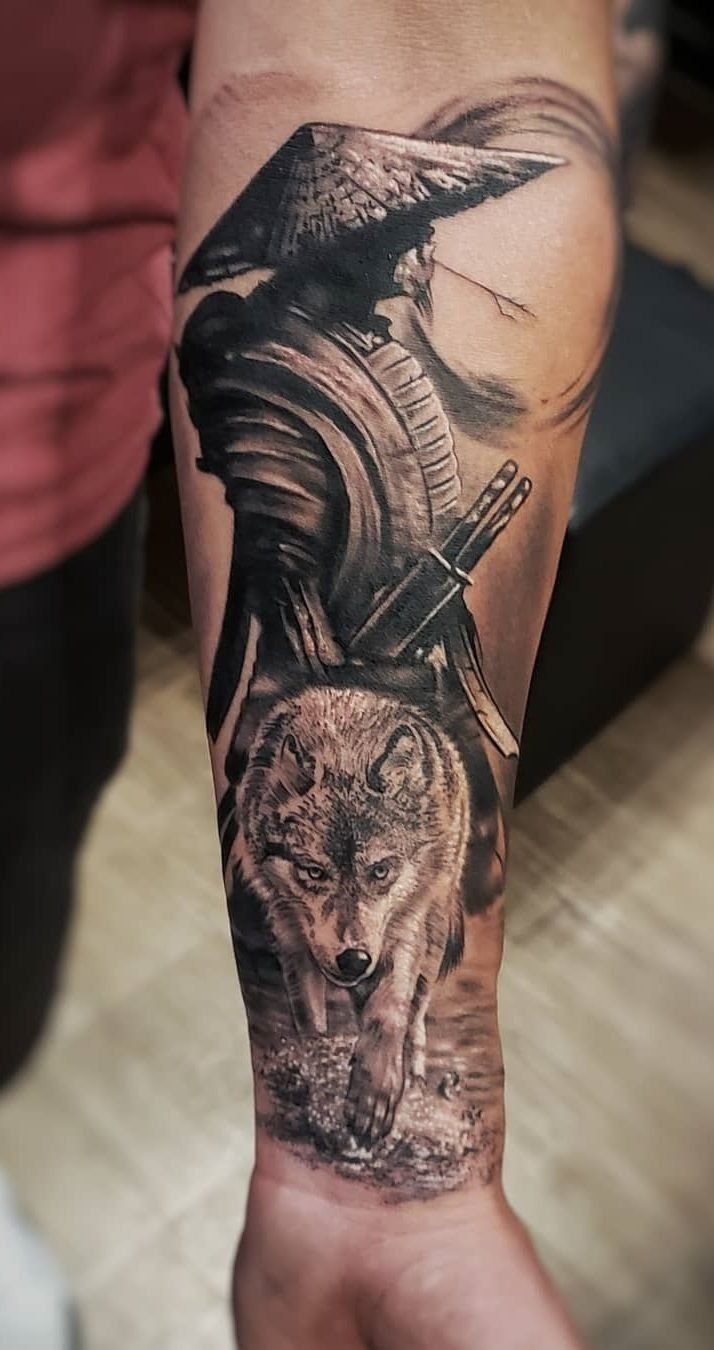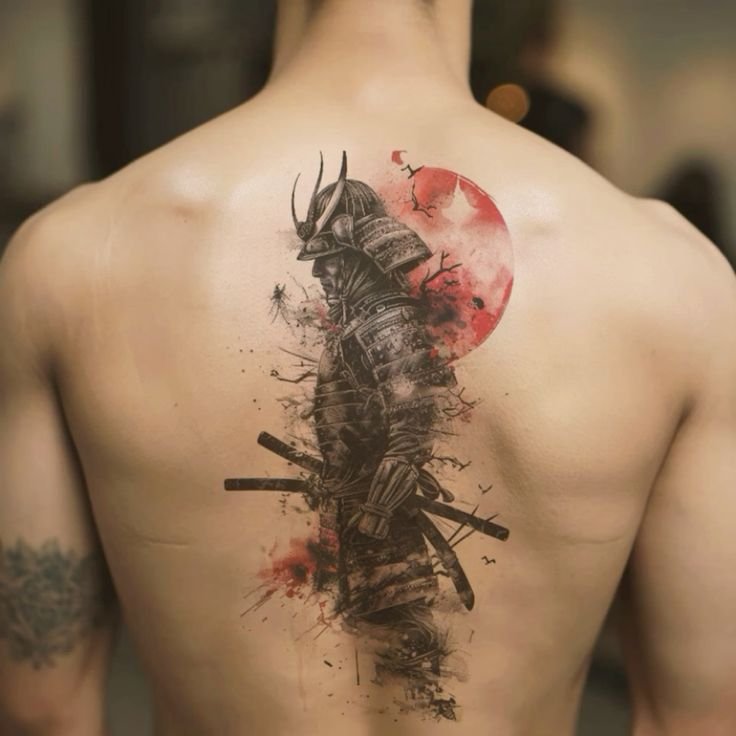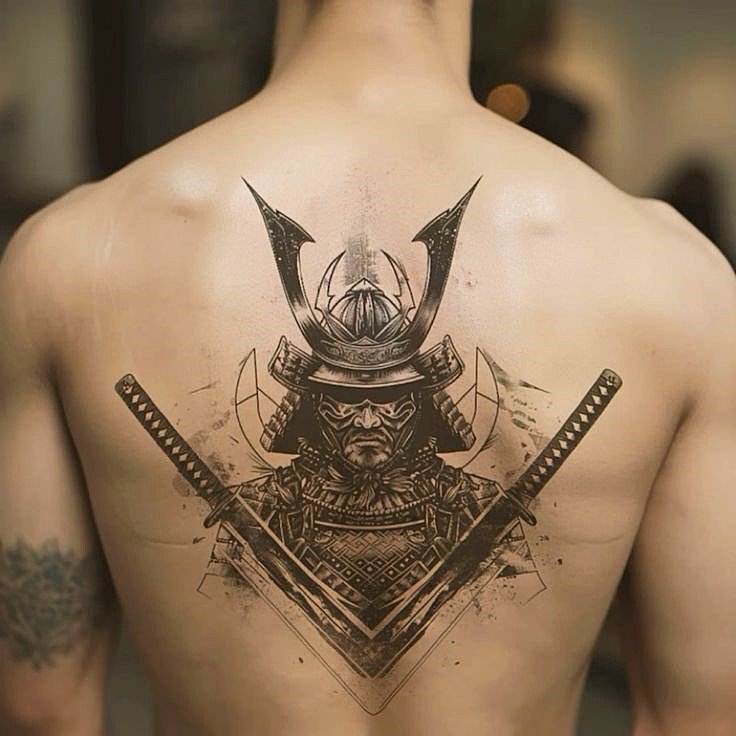Samurai Tattoo:
Symbolism, Styles,
and Design Ideas
A samurai tattoo is not just an image of a warrior, but a profound symbol that embodies many qualities such as honor, courage, discipline, and loyalty.
Samurai were not only warriors but also philosophers, cultural heroes, and representations of ancient Japanese traditions. These tattoos are often chosen by those who appreciate Japan’s historical heritage, seek inner harmony, and respect the principles of self-discipline.
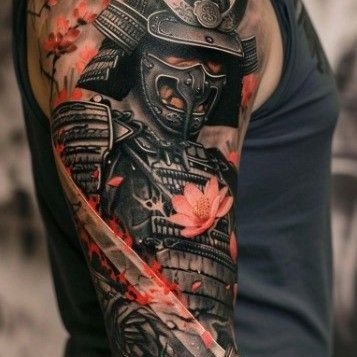
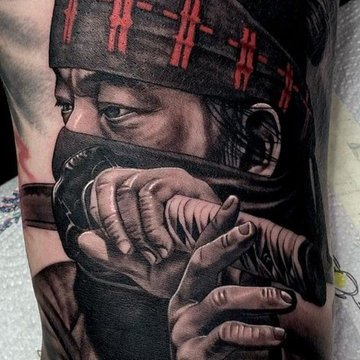
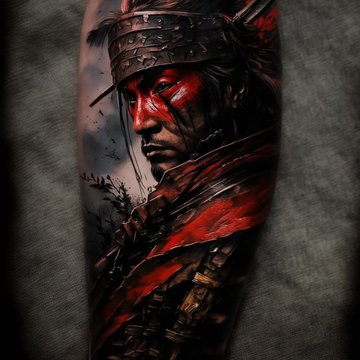
Symbolism of the Samurai Tattoo
- Honor and Dignity: Samurai adhered to the Bushido code, which emphasized honor, justice, and loyalty. A samurai tattoo can symbolize the pursuit of high moral standards, the readiness to stand by one’s principles, and the willingness to fight for one's honor.
- Bravery and Strength: Samurai warriors were known for their courage and their readiness to fight until the end. Such tattoos can symbolize bravery, resilience, and unshakable determination, especially in difficult times.
- Wisdom and Philosophy: Samurai were not just warriors but also philosophers who valued inner harmony and discipline. A samurai tattoo can reflect the pursuit of self-improvement, spiritual growth, and self-control.
- Loyalty and Devotion: Just like in ancient Japan, samurai were loyal to their lord and their people. A tattoo may symbolize loyalty, respect, and affection towards family, friends, or a beloved cause.
- Protection and Resilience: The image of the samurai is also associated with the idea of protection—of oneself and loved ones. It can symbolize courage in defending one’s family, territory, or personal boundaries.
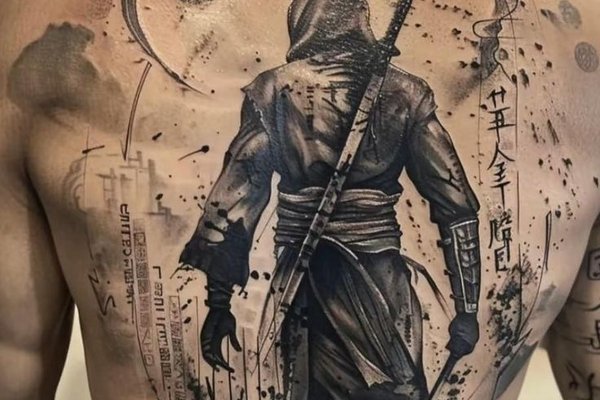
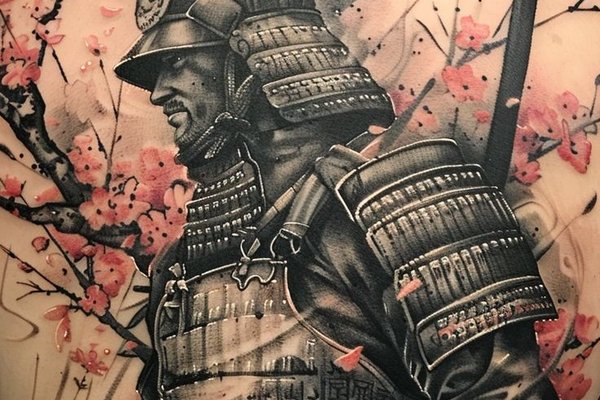
Types of Samurai Tattoos
- Samurai in Traditional Japanese Style (Irezumi): This style is characteristic of Japanese tattoos, utilizing bright, vibrant colors and intricate details. The samurai can be depicted in full armor, holding a sword, surrounded by natural elements such as waves, flowers, or clouds. This powerful and expressive design often covers large areas of the body, like the back or arm.
- Realistic Samurai: For those who prefer more detailed and realistic tattoos, the samurai can be portrayed in a lifelike, almost photographic style. In this case, the artist will focus on the fine details of the armor, facial expressions, and dynamic pose of the warrior.
- Minimalist Samurai: Some opt for a more restrained and simple style for their tattoo. Minimalist samurai tattoos often depict just the silhouette of the warrior or part of the armor, with small accents like a sword or mask. This style appeals to those who appreciate simplicity and elegance.
- Samurai in Stylized or Abstract Style: For lovers of originality, a samurai tattoo can be done in an abstract manner. This may involve a combination of geometric shapes, lines, and vibrant color splashes that convey the spirit of samurai philosophy without traditional details.
- Samurai and Mythological Elements: Many samurai tattoos incorporate elements of Japanese mythology. These can include dragons, tigers, demons, or spirits. The samurai in this context is depicted as a protector or adversary of mythical beings, adding a mystical dimension to the tattoo.
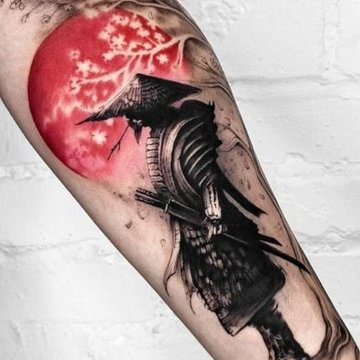
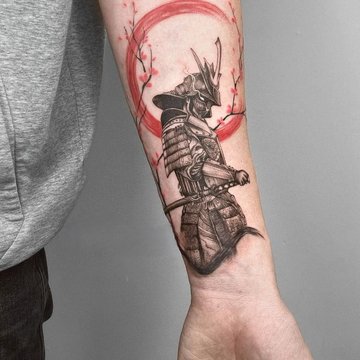
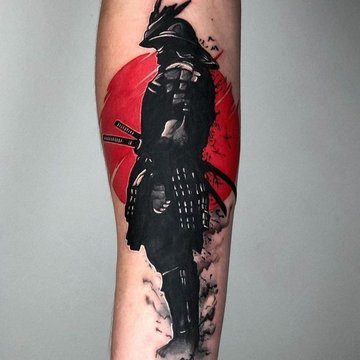
Ideal Locations
for a Samurai Tattoo
A samurai tattoo is typically large, especially if it’s in the classic Japanese style with vivid details.
Therefore, these tattoos are best suited for areas of the body that offer enough space:
- Back: The large surface area of the back is perfect for an irezumi-style tattoo. Here, you can feature the entire image of the samurai, including armor, sword, and natural elements, creating a harmonious and vibrant design.
- Arm (shoulder or forearm): This is one of the most popular locations for a samurai tattoo. The samurai can be depicted in a dynamic pose, holding a sword or wearing a mask.
- Chest and Side: For larger tattoos, including the samurai in full armor, the chest or side is a great location where you can work out the design in detail.
- Leg: Tattoos on the thigh or calf are also ideal for samurai images, especially if you want to create a tattoo that runs the length of the leg.
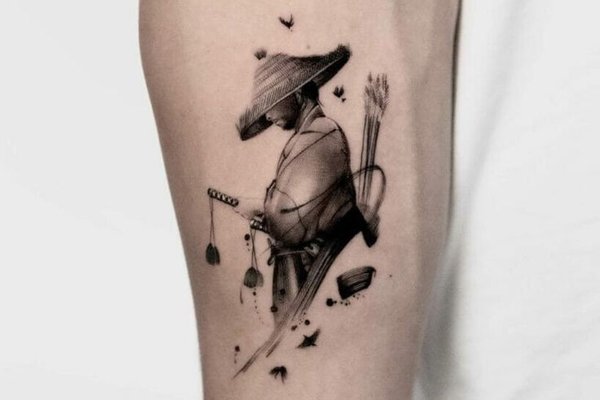
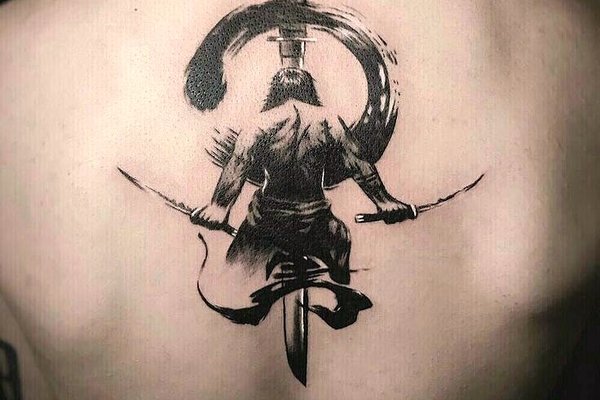
Samurai Tattoo Ideas
- Samurai with a Sword: The sword (katana) is an essential part of the samurai’s image. A tattoo of a samurai holding a sword symbolizes readiness for battle, inner resolve, and endurance.
- Samurai in Battle: You can depict the samurai in a combat pose, with a sword raised, ready to strike. This tattoo would express your willingness to fight through difficulties and overcome life’s obstacles.
- Samurai with a Mythological Creature: In Japanese culture, samurai are often shown fighting mythological beings like dragons or demons. This type of tattoo can symbolize a struggle with inner demons or an external conflict.
- Samurai and Nature: One of the most iconic images of the samurai is the warrior surrounded by natural elements like flowers, clouds, or waves. This can symbolize harmony between man and nature, as well as resilience in the face of nature’s forces.
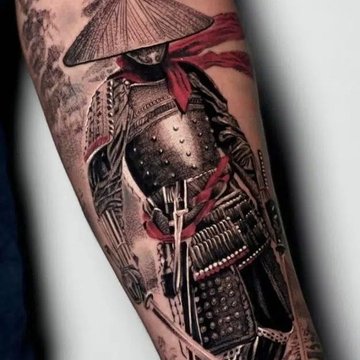
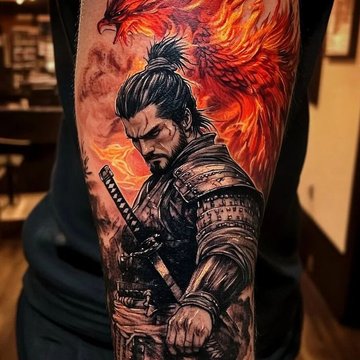
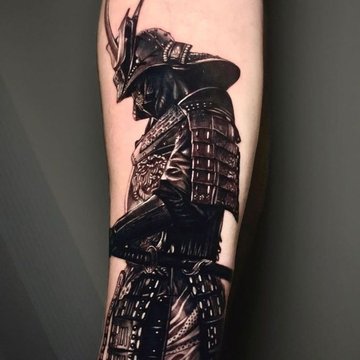
How to Choose a Tattoo Artist
for a Samurai Tattoo
A samurai tattoo requires a high level of skill, especially if it’s in the traditional Japanese irezumi style, which involves many fine details and vibrant colors.
It’s also important to find an artist who is familiar with Japanese symbolism and culture to ensure the tattoo conveys the correct meaning and respects traditions.
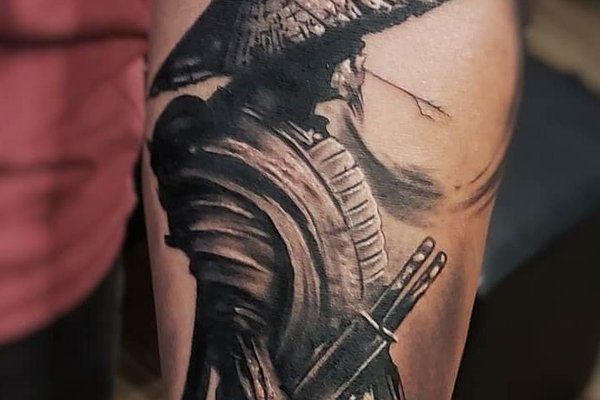
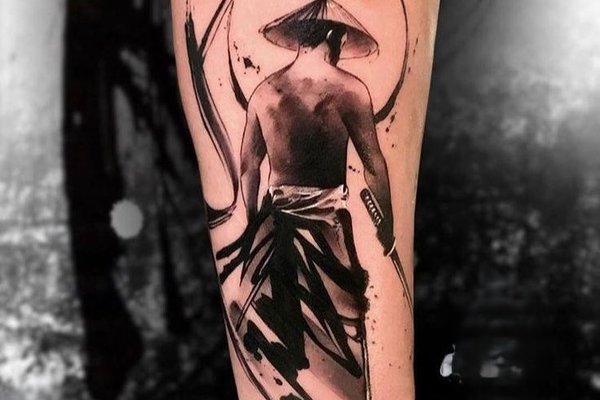
Conclusion
A samurai tattoo is not just an image of a warrior; it is a profound symbol of a philosophy that combines honor, strength, wisdom, and loyalty.
The samurai is a hero who inspires a fight against adversity and the pursuit of a higher ideal. If you wish to create a tattoo that embodies your resilience and desire for perfection, come to VEAN TATTOO studio. Our artists will help you design a unique tattoo that blends tradition and individuality.


 Make a sketch in the AI VEAN TATTOO generator
Make a sketch in the AI VEAN TATTOO generator
